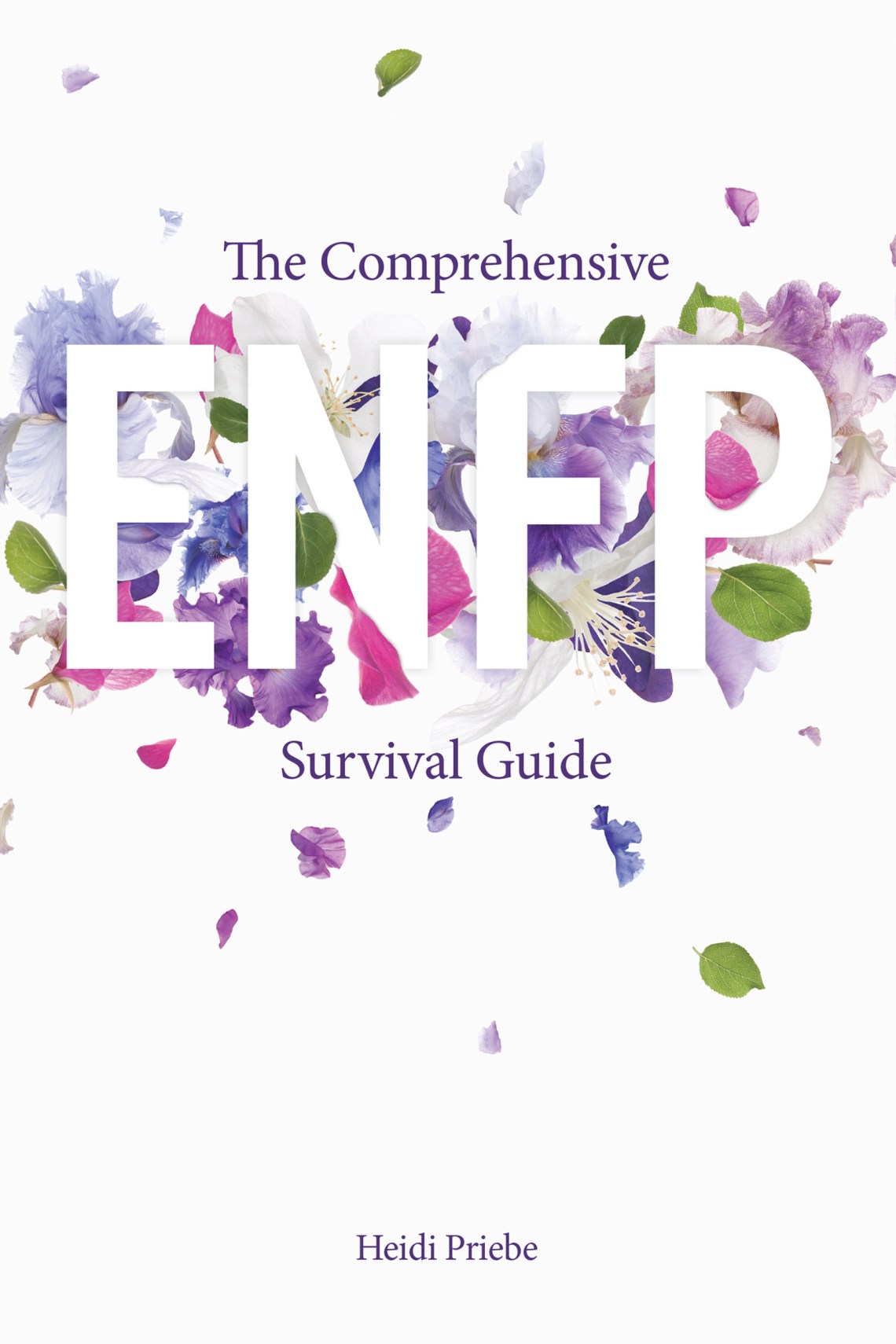
The ENFP’s Guide To Dating Rationals
The ENFP-INTJ relationship is theorized to be one of the best MBTI pairings. But there are many potential trouble areas.
By ![]() Heidi Priebe
Heidi Priebe
ENFPs belong to the idealist temperament group, but they often find themselves dating rational types – that is, INTJs, ENTJs, INTPs and ENTPs. These temperaments balance each other out in some ways but utterly conflict in others. Here’s a quick guide that outlines which rational types bring out the best in the ENFP and which types they ought to avoid.

ENFP and ENTP
Both ENFPs and ENTPs lead with extroverted intuition – which means that when you get these two types together, they finally have someone else who understands the chaos that rages inside their mind. This is an undeniably fun pairing in the short term – easy and enjoyable for friendships – but things get significantly more complicated when romance is added to the mix. The similarities between these types break down altogether when it comes to emotions, as the Fi + Te pairing doesn’t sync naturally with the Ti + Fe stack.
Strengths of this pairing: Both parties can appreciate the other’s creativity, high energy and openness to new ideas. At best, the ENFP can appreciate the ENTP’s rational analysis of new ideas and the ENTP can appreciate the ENFP’s commitment to their morals. Both partners are likely to enjoy spending time around someone who intuitively ‘gets’ their fondness for synthesizing new concepts.
Potential pitfalls of this pairing: ENFPs value having a deep emotional connection with their partners, whereas ENTPs show their love through attentiveness and accommodation of their partner. The ENTP’s combination of introverted thinking and extroverted feeling are difficult for the ENFP to understand, as they share neither of these functions. As a result, the ENFP may view the ENTP as cold, uncaring and immoral. The ENTP also has a difficult time understanding introverted feeling paired with extroverted thinking and they may view the ENFP as selfish, dramatic and overly sensitive.
Verdict: While this is certainly a fun pairing, it doesn’t bode well in the long-term. Both types work best with a grounded partner who can balance out their high energy level. Best to avoid this combination for serious relationships.
ENFP and INTP
These types share two functions (extroverted intuition, which is primary for the ENFP and secondary for the INTP, and introverted sensing, which is last for the ENFP, third for the INTP). This gives them some common ground, particularly if the INTP is comfortable using their extroverted intuition regularly. This relationship offers a relative degree of comfort, as neither type finds the other particularly intimidating and both are somewhat laid-back in nature.
Strengths of this pairing: Both types are very open-minded and enjoy exploring new ideas from different angles. At best, the ENFP will appreciate the INTP’s intellectually explorative attitude and will be energized through mutually brainstorming new ideas. The INTP will, at best, appreciate the ENFP’s understanding of emotions and their openness to new ideas. Both will appreciate the other’s independence, intellectualism and wit.
Potential pitfalls of this pairing: The most prominent function these types share is extroverted intuition, which is not dominant for the INTP. This means that to connect on an intuitive level, the INTP would always be using their auxiliary function, which would exhaust them. At worst, the INTP would view the ENFP as overwhelming, irrational and overly emotional. The ENFP would, at worst, see the INTP as reclusive, uninteresting and overly critical. Any conflicts that arise will likely be difficult to resolve, as the decision-making functions of these types are opposite to one another and used in reverse order.
Verdict: Though this relationship may be comfortable, it gives way to many potential misunderstandings that are not easily resolved. Not ideal for romantic relationships.
ENFP and ENTJ
This pairing can be quite effective if both partners have developed their inferior functions. If the ENFP is comfortable using their extroverted thinking and the ENTJ is comfortable using their introverted intuition (their auxiliary function, which balances out the ENFP’s extroverted intuition), the two can find a great deal of common ground. Both types are extroverted go-getters who enjoy examining abstract concepts and putting their ideas into action.
Strengths of this pairing: Both types are interested in the viewpoints of others, and will likely enjoy analyzing each other’s differing perspectives on various topics. At best, the ENFP will find the structured, down-to-earth attitude of the ENTJ grounding and the ENTJ will find the spontaneous, enthusiastic nature of the ENFP refreshing. In many ways they will balance one another out, and will likely challenge one another to develop their inferior functions. As an added bonus, both types are highly enthusiastic and inventive when it comes to intimacy. The sexual chemistry is usually on point.
Potential pitfalls of this pairing: If the ENFP has poorly developed extroverted thinking, the ENTJ may view them as scattered, overly theoretical and too emotional for their own good. If the ENTJ has poorly developed extroverted sensing and introverted feeling, the ENFP may view them as cold, controlling and overly rigid.
Verdict: This can be a highly satisfying relationship for both partners, particularly if they are open to developing their inferior functions. Definitely worth a shot. With two mature partners, this pairing has serious long-term potential.
ENFP and INTJ
The ENFP-INTJ relationship is theorized to be one of the best MBTI pairings. Both types are highly independent, highly analytical and highly unconventional by nature. Though these types do often experience a natural connection, it’s important to note that there are still potential trouble areas for the pairing. Both types are somewhat prone to narcissistic tendencies in their youth, which means that this pairing will work best once each partner has developed their inferior functions and is open to the other’s input. Between two mature partners, the ENFP-INTJ pairing can be sheer gold. These types naturally bring out the best in each other and have opposing weaknesses or blind spots, which makes for a well-rounded team.
Strengths of this pairing: Both types enjoy exploring new ideas, debating theoretical issues and speculating future plans. Additionally, both partners place a high emphasis on self-improvement and enjoy exploring ways to optimize both themselves as individuals and their relationship. At best, the ENFP will appreciate the INTJ’s deeply analytical nature and structured lifestyle, whereas the INTJ will appreciate the ENFP’s open-mindedness and enthusiastic nature. These types are apt to bring out the best in each other, as the ENFP naturally understands social nuances that the INTJ struggles to comprehend and the INTJ delves deeply into the theoretical issues that the ENFP has trouble understanding or implementing.
Potential pitfalls of this pairing: This type gets into hot water if the ENFP has poorly developed extroverted thinking or if the INTJ has underdeveloped introverted feeling. In this case, the ENFP is likely to view the INTJ as cold, overly rigid and narcissistic or selfish. The INTJ is, in turn, likely to view the ENFP as scattered, over-dramatic and unable to apply or follow through with any of their ideas.
Verdict: Get two well-developed types together and this pairing is pure gold. Both partners will challenge the other to grow past their weak spots and continue to self-actualize. Put a ring on it. ![]()












